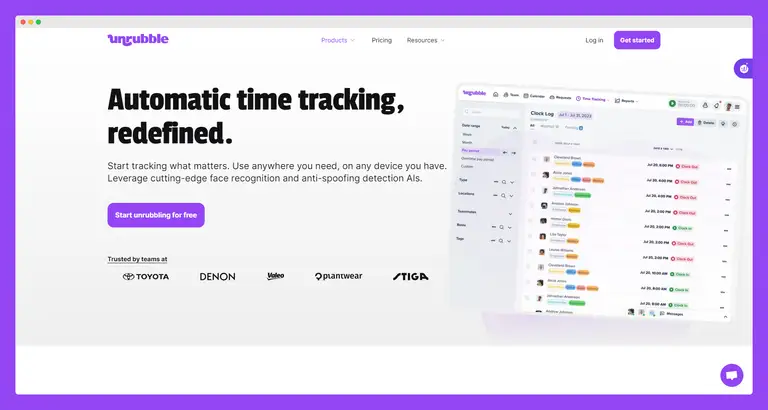How long does it really take to complete a certain task or, better yet, a project? Not quite sure? Don’t worry, then! In today’s blog post, we will show you how to estimate time more efficiently without guesswork.
Why is it hard to estimate the time necessary to do something?
01 Optimism bias may make time predictions inaccurate
Optimism bias is a cognitive phenomenon that suggests people think they are less likely to experience negative events than others. This mindset is common when they make time estimates for tasks or projects. Often, they believe they'll complete tasks more quickly than they realistically will.
This bias doesn't just affect beginners. Even experts in a field can be fooled by it.
The results are: missed deadlines, rushed work, or inadequate planning. Understanding and recognizing this bias is the first step toward making better time assessments. So be aware of them!
02 Unexpected problems can pop up
Sometimes even the best-laid plans can go wrong. It's not always possible to predict every obstacle in advance. Such surprises bring delays or the need for additional resources. Often, hiccups force a change in strategy or approach. However, addressing them calls for flexibility and adaptability. Easier said than done, right?
In any project, planning for the unexpected is a must, even if it seems paradoxical.
03 People work at different speeds
Some people complete tasks quickly, while others take more time. It’s super normal and depends on several factors:
- experience,
- familiarity with the task,
- personal work style.
They all have an impact on how quickly something can get done.
Try to always have these differences in mind. Especially if you care to make team projects run smoothly.
04 It’s easy to get sidetracked or interrupted
Often, when working on a project, distractions cause project management challenges. An accurate time estimate assumes no interruptions, but that's rarely the case.
Using a proper estimation technique or a tool for that is necessary for an accurate project plan. So keep interruptions in mind if you want to manage your time to complete a project on time.
05 Estimations often don't account for breaks and rest periods
This is the moment when optimism bias takes over. It is because we’re too optimistic about estimations in project management, and we overlook breaks and rest periods. And that’s a big no-no. Breaks give us a fresh look at things, make us relax, and prevent burnout. And that’s something most leaders strive for (or at least should).
Are you a project manager who tries to estimate time? Don’t focus solely on the work itself.
06 Complexity of tasks can be underestimated
At first glance, a task or project might not seem complicated. But be careful. Delve into the project as a whole and understand every aspect to achieve accurate time estimation. Breaking the project into smaller tasks provides a clearer picture of the time required to complete each segment. You can get a realistic idea of how long a project will take by using time-tracking software. And Unrubble is a great choice - we’ll show you later what it is all about.

07 Some may lack past experiences to judge time
Without historical data or a similar type of project as a reference, the accuracy of your time estimates might suffer.
One way to improve your time estimation is to break down the project into smaller components and then estimate time for each part of the project (again).
Over time, and with consistent track-time practices, project managers can get more realistic and accurate timelines. Feedback from those with more experience helps determine the scope of the project and its timeline.
08 Our mood can change how fast we work
When we feel upbeat and motivated, we might finish tasks more quickly compared to when we are down or distracted. Time estimation in project management should account for factors such as these.
Luckily, time-tracking software helps you spot the gaps between estimated and actual project times. Don’t ignore them. Otherwise, these gaps may lead to inaccurate project timelines. Whenever you're planning the time for a project, remember to factor in your and your team's emotional and mental well-being.
09 Some tasks rely on others, causing delays
Some tasks in a project are interdependent. It means that the completion of one task is critical for starting another.
And unfortunately, this reliance often causes delays. This is especially true if it takes longer than expected to complete the initial task. Project managers should be aware of such dependencies when setting a realistic project schedule.
Breaking the project down into smaller tasks to understand the interconnections between them is the thing you should do. The time needed to complete one task directly influences the time required for subsequent tasks.
10 Our thinking can sometimes be off when guessing the time
The fact is that experience provides valuable insights. However, even seasoned project managers might sometimes misjudge how long a task or project will take.
We’re only humans, after all.
Using time estimation methods, such as bottom-up estimates, gets you a more structured approach to predicting project time. Timing estimates affect scope and completion dates a lot.
Review and adjust estimates for projects regularly – go through the feedback and lessons learned from previous projects. And what’s more important, make the necessary changes next time. That’s the recipe for a successful project.
How to estimate time: Tips for accurate estimation
Now, let’s figure out how to estimate time like a pro and complete the project before the deadlines. 😎
#1 Use time-tracking software
If you haven’t used a time-tracking tool, you’d better start using it. That’s a time-, life-, money-saver. You’ll no longer rely on assumptions. Instead, you’ll know exactly how much time it takes to get something done.
But it is the thing – not every tool is like that.
Luckily, we’ve got a platform that works like a Swiss watch. Let us introduce Unrubble.

It offers powerful features to manage your project time. With Unrubble, you can see how much time you spend on different project tasks.
It’s not the end of the list.
This advanced solution provides real-time reports while managing breaks, detecting over time hours, and making it easier to export data. It is more than just a tool. It's an efficient time management system – the perfect choice for project managers who want to stay on track with their project time and support their teams.

#2 Create a list of bigger tasks
Doing lists is underrated. But it is the base of every project, no exceptions here. Use whatever tool you like - an app, an old-fashioned paper, and pencil, maybe a tablet.
When working in a team, you’ll be sharing the list with others. So, it might be more convenient to have it editable on your computer. Having the tasks all in front of your eyes makes the whole estimation process more accurate.
The list gives clarity on the project scope and highlights areas that might need more focus.
Doing so keeps the entire project on track and supports a more efficient use of time. Estimation of these tasks is key to successful project completion. Project managers often find that breaking down and estimating these bigger tasks upfront leads to more accurate project estimates overall.
So our next tip is to…
#3 Break the bigger tasks into smaller ones
Once you’ve got big tasks in front of you, it’s time to break them into smaller ones. This method makes it easier to predict the amount of time each part might take.
Each small task has its own time, and tracking these makes the entire project on schedule. Remember that underestimating or overestimating the time of these small tasks affects the project cost.
As well as the overall time estimates for the project. For the best project outcome, breaking tasks down proves essential, giving managers a clear road to follow.
#4 Discuss the steps of the tasks with everyone involved
Always make sure that everyone is on the same page. Reaching a common goal, which is to complete a task, then becomes easier. However, to complete the task, you need to know first how to schedule the whole process and how much time it will take.
Besides, every person working on a project offers unique insights. Maybe someone would touch upon the matter you wouldn’t even think of. Maybe it would be something that significantly changes the time estimation? You never know.
The conclusion is that the more details everyone has, the easier it becomes to estimate the time needed for successful project completion.
#5 Always give yourself some extra time
The unexpected might extend the amount of time required or change the estimates for a project. That's why you should add a time buffer.
It is because some things are just not predictable. However, project managers can smooth out the progress by expecting the unexpected (if they have a good gut feeling and a lot of experience).
So, setting aside some extra time is a good idea. Especially if you are striving for the project's success.

#6 Take a step back
As an ambitious person, you probably know how much value it brings to analyze your work and draw conclusions from it.
Past projects provide real data on how long tasks take. This data gives a benchmark for the project at hand. PMs can use this information to keep their project on track.
And, as you know from today’s blog post, it's imperative for a successful project to have accurate time estimates. So, always use as a benchmark your past or similar project to see what to do better text time.
Project management vs time estimation: Final confrontation
Project management and time estimation are two equally vital parts of a successful project. They go hand in hand.
Without accurate time estimation, it’s hard to manage a project.
And when talking about time, Unrubble is a go-to tool. Why? This time-tracking tool lets users see how long a project or task really takes. On top of that, having real data from Unrubble can improve time estimates for future projects. So, sign up for free and see how Unrubble works.
So, now you’re ready to create more accurate estimates. Get all the tasks done without any fear of deadlines. 💪🏻
Time estimation in project management: FAQ
What are the time estimation methods?
Time estimation methods include using time tracking software to monitor work hours, comparing tasks against past time estimates, and looking at the time required for similar past projects. Make your time estimates are based on real data for a successful project.
How to estimate accurately when working with others?
Discuss with team members and track time throughout the project. Use time tracking software for accurate records. Always consider the time it takes to complete tasks. Getting input from everyone provides useful information for the project and ensures accuracy in time estimates.
Why is estimation important?
Estimation keeps the project on track and within budget, that’s why it is essential. Accurate time estimates prevent the project from running over the given time. Project managers rely on estimation to plan work and ensure everything finishes on time. Remember, accurate estimation is critical to a project's success.






